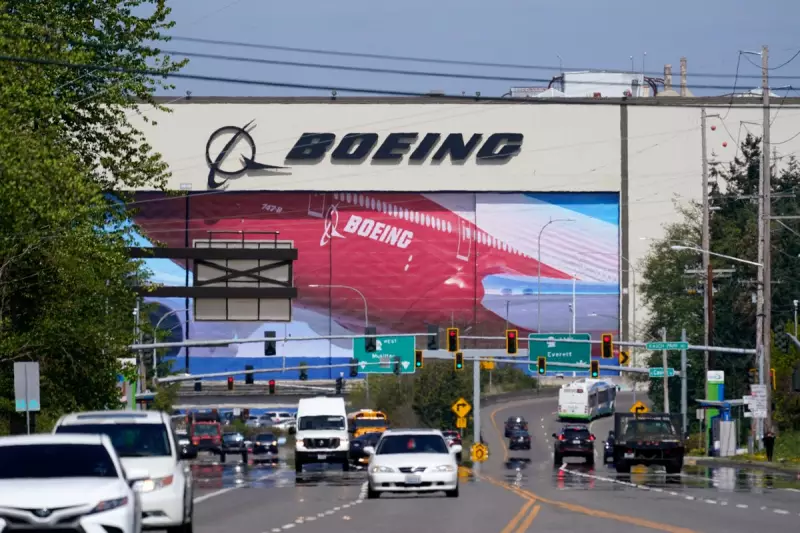
In a dramatic move that has sent shockwaves through the aviation industry, the Federal Aviation Administration has announced it will not permit any expansion of Boeing's troubled 737 MAX production line. This decisive action comes in response to the alarming mid-air incident involving an Alaska Airlines aircraft that lost a door plug during flight.
Safety crisis triggers production freeze
The FAA's statement confirmed the agency is immediately freezing production rates of Boeing's best-selling jetliner, dealing a significant blow to the manufacturer's recovery plans. "We will not agree to any request from Boeing for an expansion in production or approve additional production lines for the 737 MAX until we are satisfied that the quality control issues uncovered during this process are resolved," the aviation regulator declared.
Investigation reveals systemic concerns
Authorities have launched a comprehensive safety probe into Boeing's manufacturing practices, with the FAA emphasising that the review must address "serious quality control issues" within both Boeing and its key supplier Spirit AeroSystems. The investigation will scrutinise the entire production process, from component manufacturing to final assembly.
Alaska Airlines incident: What happened
The crisis erupted when Alaska Airlines Flight 1282 experienced a catastrophic failure shortly after takeoff from Portland, Oregon. A door plug—a panel used to seal unused emergency exits—detached from the aircraft's fuselage at approximately 16,000 feet, creating an explosive decompression that forced an emergency return to Portland.
Miraculously, none of the 171 passengers and six crew members suffered serious injuries, though the incident left the aviation community reeling. Preliminary investigations suggest critical bolts intended to secure the door plug were either missing or improperly installed.
Global repercussions for Boeing
This production halt represents another major setback for Boeing, which has been working to rebuild trust following the 20-month worldwide grounding of the 737 MAX after two fatal crashes in 2018 and 2019. The manufacturer had been gradually increasing production rates in response to strong demand from airlines seeking fuel-efficient aircraft.
The FAA's unprecedented intervention signals a fundamental shift in regulatory oversight, with authorities taking a much more hands-on approach to Boeing's manufacturing processes and quality assurance systems.
What happens next?
The aviation industry now faces significant uncertainty as Boeing works to address regulatory concerns while maintaining existing production levels. Airlines that had been counting on new 737 MAX deliveries may face operational challenges and potential delays to their fleet expansion plans.
As the investigation continues, all eyes remain on Boeing's response and their ability to demonstrate that they can consistently produce safe, reliable aircraft that meet the stringent standards expected by regulators and the flying public alike.





